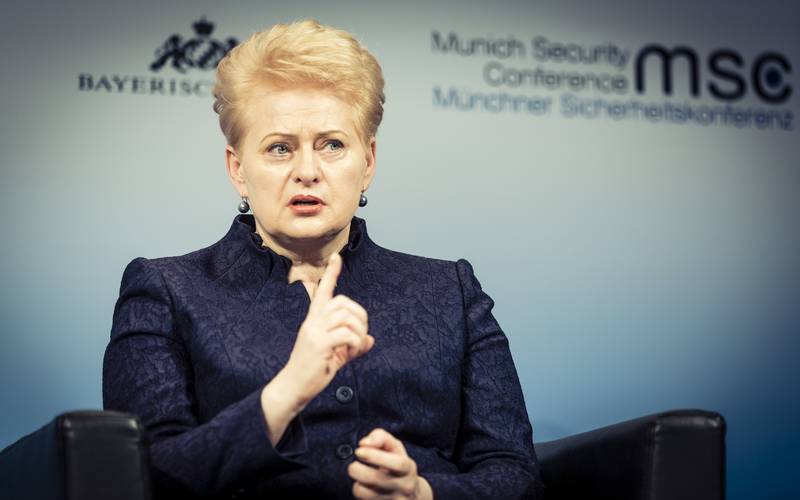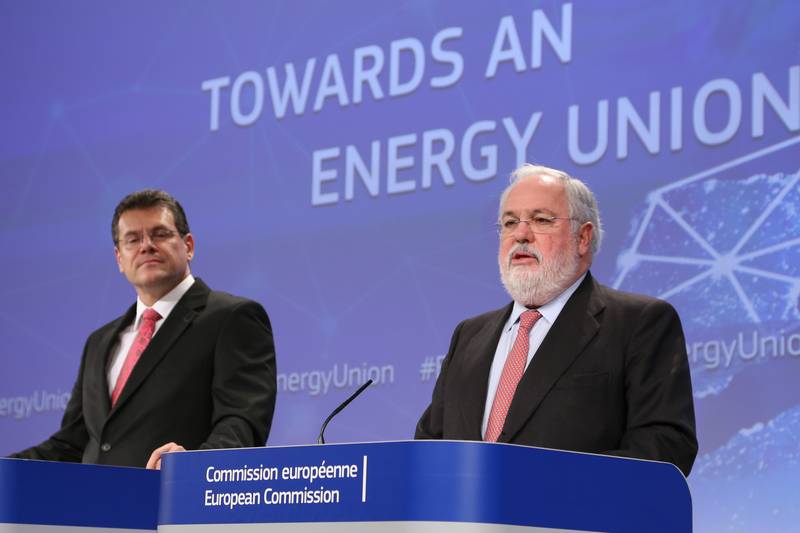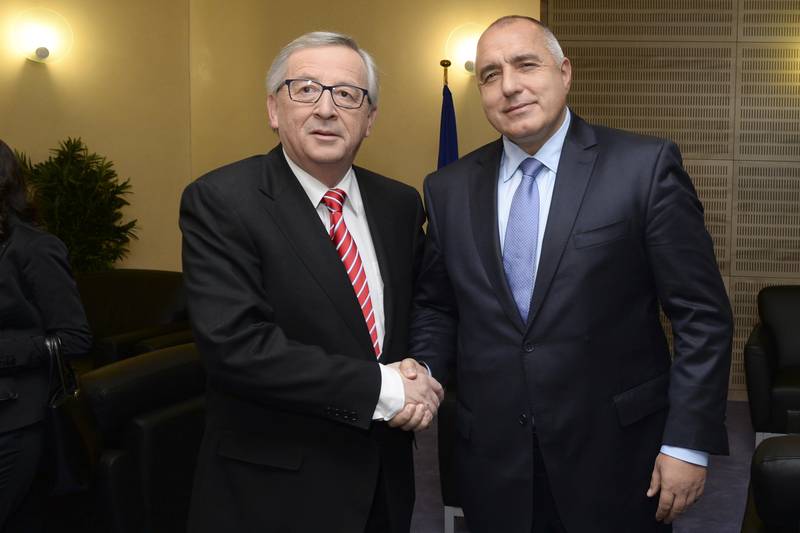Bulgaria wants the costs of Nabucco to be deducted from the deficit
Ralitsa Kovacheva, September 23, 2010
 Bulgaria wants the contributions for the construction of the Nabucco pipeline, due by EU countries participating in the project, to be recognised by the Union as targeted costs and not be included in national budget deficits. This position was expressed by Prime Minister Boyko Borissov during his meeting with the U.S. Special Energy Envoy for Eurasia Richard Morningstar, the Government Information Service reported. So far it is not known whether Bulgaria had expressed such a position to the European Union. euinside sent questions on the matter to the European Commission and the government press office and we are still waiting for answers.
Bulgaria wants the contributions for the construction of the Nabucco pipeline, due by EU countries participating in the project, to be recognised by the Union as targeted costs and not be included in national budget deficits. This position was expressed by Prime Minister Boyko Borissov during his meeting with the U.S. Special Energy Envoy for Eurasia Richard Morningstar, the Government Information Service reported. So far it is not known whether Bulgaria had expressed such a position to the European Union. euinside sent questions on the matter to the European Commission and the government press office and we are still waiting for answers.
It is curious, on the one hand, whether Bulgaria has consulted its idea with the other  EU countries participating in the project and what is their position. Also it is not known (at least publicly) if Sofia had officially filed a similar request to the European Commission. And sharing it in Washington (especially if it is for the first time!) looks more like an attempt to twist hands, given the importance of Nabucco for the EU and the American support for the project. Meanwhile, Bulgaria has signed a roadmap for the Russian South Stream pipeline, without obtaining substantial discounts in the price of Russian gas, as the government had promised. But the full picture will be clear when we receive the answers of our questions from the relevant institutions in Brussels and Sofia.
EU countries participating in the project and what is their position. Also it is not known (at least publicly) if Sofia had officially filed a similar request to the European Commission. And sharing it in Washington (especially if it is for the first time!) looks more like an attempt to twist hands, given the importance of Nabucco for the EU and the American support for the project. Meanwhile, Bulgaria has signed a roadmap for the Russian South Stream pipeline, without obtaining substantial discounts in the price of Russian gas, as the government had promised. But the full picture will be clear when we receive the answers of our questions from the relevant institutions in Brussels and Sofia.
This is the second time Bulgaria is attempting to reduce its budget deficit by accounting tricks, since our country has already supported the request of another eight EU countries, the costs of pension reforms not to be included in the budget deficit. And on this issue, however, there is still no official position of the European Commission. The expectations are that this is unlikely to happen, firstly because it is difficult to calculate the exact "costs" of pension reforms and secondly, because the admission of even one exception to the rules will open the door for many other requests.
Among other things, Boyko Borissov discussed with Mr Morningstar in the United States the other Bulgarian energy projects such as the construction of the interconnection with Greece, the South Stream project, the construction of Belene nuclear power plant (NPP) and of a seventh reactor of the Kozloduy NPP. Borissov said that "Bulgaria has all permits and can start building a second nuclear power plant as of tomorrow”, this is why European investors are urgently needed. "Belene could become one of the most significant and major projects both in the Balkans and in Europe", Borissov said. It is not known what position Special Envoy Morningstar had expressed on the issue.
And with regard to the alternatives, the possibilities of importing gas from Iraq as an alternative supplier and also the schist gas extraction in Bulgaria were also discussed, as several American companies had already demonstrated interest. Meanwhile, under “the auspices” of Bulgarian President Gheorghi Parvanov, a Bulgarian-Azeri working group is discussing for some time the possibilities for deliveries of liquefied Azeri natural gas to Bulgaria by sea. The ambitious goal is thus 50 percent of Bulgaria's needs to be covered in 2013. So far, however, there are no specific news on the topic.
Meanwhile, however, on September 14 in Baku, Romania, Azerbaijan and Georgia have agreed on the import of liquefied Azeri gas through the Azerbaijan-Georgia-Romania Interconnector (AGRI) project. One week later, Hungary announced it will also take part in the project. It provides for Azeri gas to be transported “via a pipeline to a Black Sea port in Georgia for liquefication. Further transport will take place via tankers to the Romanian Black Sea port of Constanta. From there, the gas will be pumped through Romania's pipeline system to Hungary and on to the rest of the European market”, EurActiv wrote. Bucharest and Budapest are committed to ensure European co-financing for the project, whose main advantage, as compared with Nabucco for example, is the speed at which it can be implemented.
 The European Parliament yesterday has done something that Bulgaria has not done for almost two years, although the country was among the victims of the gas crisis of early 2009. The Parliament adopted new rules on the security of gas supply. Energy Commissioner Günther Oettinger announced that the Commission had set aside 1.4 billion euro for infrastructure projects such as reverse flows. As you know, Bulgaria will receive 45 million euro for the gas interconnection link with Greece, 9 million for the interconnector with Romania and part of a package worth 200 million euro for the Nabucco pipeline. In the Annex to the adopted legislation it is explicitly noted that cooperation between Bulgaria, Greece and Romania could enhance their security in terms of gas supplies.
The European Parliament yesterday has done something that Bulgaria has not done for almost two years, although the country was among the victims of the gas crisis of early 2009. The Parliament adopted new rules on the security of gas supply. Energy Commissioner Günther Oettinger announced that the Commission had set aside 1.4 billion euro for infrastructure projects such as reverse flows. As you know, Bulgaria will receive 45 million euro for the gas interconnection link with Greece, 9 million for the interconnector with Romania and part of a package worth 200 million euro for the Nabucco pipeline. In the Annex to the adopted legislation it is explicitly noted that cooperation between Bulgaria, Greece and Romania could enhance their security in terms of gas supplies.
Under the new rules during a crisis, the supply of households with gas will be a priority. They should not be left without gas in three cases: extreme temperatures during a seven-day peak period; any period of at least 30 days of exceptionally high demand; at least 30 days in the event of infrastructure disruption under average winter conditions.
Member States will need to ensure that even if their biggest sources of gas or a large part of the network fails, the remaining network is capable to meet the total daily gas demand on a day of "exceptionally high demand" (which, statistically, happens once every 20 years).
The new legislation requires Member States to ensure a certain level of standards for delivery by building additional capacity storage technology to introduce two-way movement of gas connections, to provide integrated transmission network of the EU and reduce their dependence on a third party single supplier.
National authorities will have four years to comply with this supply standard but cross-border interconnections among EU countries will have to be in place within three years of the legislation's entry into force (2011).
In the next two years, Member States must develop public (i.e. accessible to the public) plans for preventive action and plans for emergency operations. The Commission will have an enhanced role in coordinating the emergency response and ensure that national plans do not jeopardise the security of supplies to other Member States which are also in a crisis.
If, despite preventive measures, emergency arises due to serious disruption or extremely high demand, the Member States would trigger national plans for emergency operations. The European Commission has the power to declare emergency in the EU or a region at the request of at least two Member States who have already declared national emergency.
The new rules are the first such major and concrete step at a European level in terms of security of gas supplies. The benefit of these rules is double: firstly, they put the issue in a European context and define the Commission's leadership in crisis situations. And secondly, the rules oblige Member States to take measures which otherwise they might not do alone. Because, unlike Germany, which secured its gas supplies through the Nord Stream pipeline (from Russia directly under the Baltic Sea), Bulgaria, for example hasn't done anything about it in terms of a crisis plan, and in terms of diversification of the sources.
And since in our country this topic is more politically charged, including in  a domestic context, than it is healthy, the only obvious solution is this - a strong common European energy policy, which should set strategic goals and priorities. And which is a guarantee that the states will fulfill their commitments to customers in case of a crisis, which last year did not happen.
a domestic context, than it is healthy, the only obvious solution is this - a strong common European energy policy, which should set strategic goals and priorities. And which is a guarantee that the states will fulfill their commitments to customers in case of a crisis, which last year did not happen.
 Dalia Grybauskaite | © MSC/Koerner
Dalia Grybauskaite | © MSC/Koerner Maros Sefcovic, Miguel Arias Canete | © European Commission
Maros Sefcovic, Miguel Arias Canete | © European Commission Jean-Claude Juncker, Boyko Borissov | © European Commission
Jean-Claude Juncker, Boyko Borissov | © European Commission